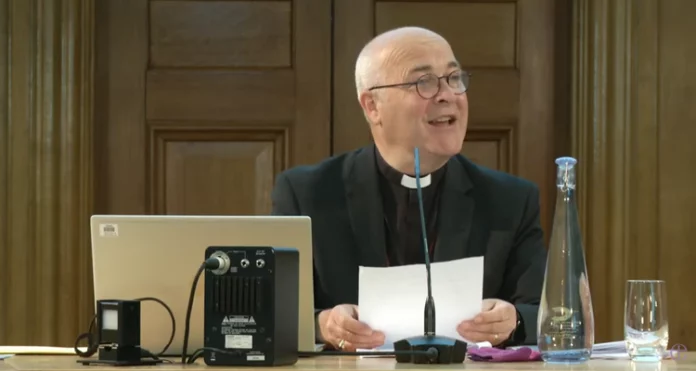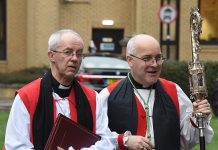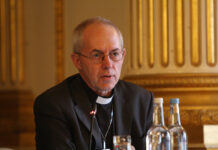OVER recent weeks, I have been reading and pondering the opening chapters of the Book of Genesis, the Bible’s account of the creation of the heavens and the earth by God. Whether you adopt a historical-literal approach to the text or an allegorical one, it is an account rich in meaning and explanatory power on the nature of reality, of man, and of mankind’s place in the natural world.
These early chapters also shed a revealing light on the nature and activity of what scripture tells us is mankind’s great enemy, Satan. As Christ tells us in John’s Gospel, Satan was a liar and a murderer from the beginning, and this can be clearly seen in the account Genesis gives of the lies told by Satan to Eve as he seeks to persuade her to disobey God’s commandment. Consistent with this role played by Satan in the fall, we are told by Christ in the Gospels that there is no truth in Satan, but that he is a liar and the father of lies. In this, Satan stands in stark contrast to God, who is in his very nature truth. Hence St John’s description of Christ as the Word made flesh, who ‘dwelt among us . . . full of grace and truth’, and Christ’s declaration later in St John’s Gospel that ‘ye shall know the truth, and the truth shall make you free’.
This contrast came to mind as I followed the recent vote of the Church of England’s General Synod to approve proposals which would enable same-sex couples to have their relationships blessed in church after civil marriage. The lack of clarity and, at times, apparent intellectual dishonesty of some senior proponents of this change was depressing coming from an institution ostensibly committed to following the truth of Christ.
In presenting the proposals to the wider Church membership, senior bishops including the Archbishops of Canterbury (Justin Welby) and York (Stephen Cottrell) arguably misrepresented the nature of the proposed reform. They repeatedly asserted that the provision of such blessings would involve ‘no change to the doctrine of holy matrimony’, despite this being an assertion easily disproved by the most cursory examination of traditional doctrine, as well as by the express statements made elsewhere by the bishops themselves.
Traditional Christian teaching as reflected in past resolutions of the Anglican Communion states that any sexual acts committed outside marriage are sinful, with Biblical marriage defined as the lifelong union of a man and a woman. Purporting to bless a union of two people of the same sex, within which sexual acts are almost always going to take place, is clearly completely inconsistent with that established doctrine.
Such a conclusion is supported by express statements elsewhere by senior figures such as Cottrell that ‘sexual and physical intimacy’ is to be cherished in all ‘stable, loving, committed relationships’. Yet rather than engage honestly with traditionalists by arguing openly for the radical change of doctrine which they clearly desire, senior bishops instead continue to obfuscate and hide their real intentions behind a wall of smooth-tongued flimflam.
There is a similar lack of truth-telling regarding the future place of traditionalists in the Church. Proponents of change insist that ‘no one has to offer these services and no one will be disadvantaged if they choose not to’. However, similar assurances given some years ago to traditionalists regarding women’s ordination have not stopped the Church hierarchy from slowly marginalising those with traditional views on that matter. Further, traditionalists would hardly be able to rest easy given the frequent assertions by senior figures that the recent vote is in any event not the end of the matter, but is simply one ‘real step forward’ in a longer course of reform to accommodate the demands of LGBTQI+ campaigners.
Even more egregious examples of forked tongues and broken promises on this issue can be found in that graveyard of virtue, the Houses of Parliament. …
Read it all in The Conservative Woman










